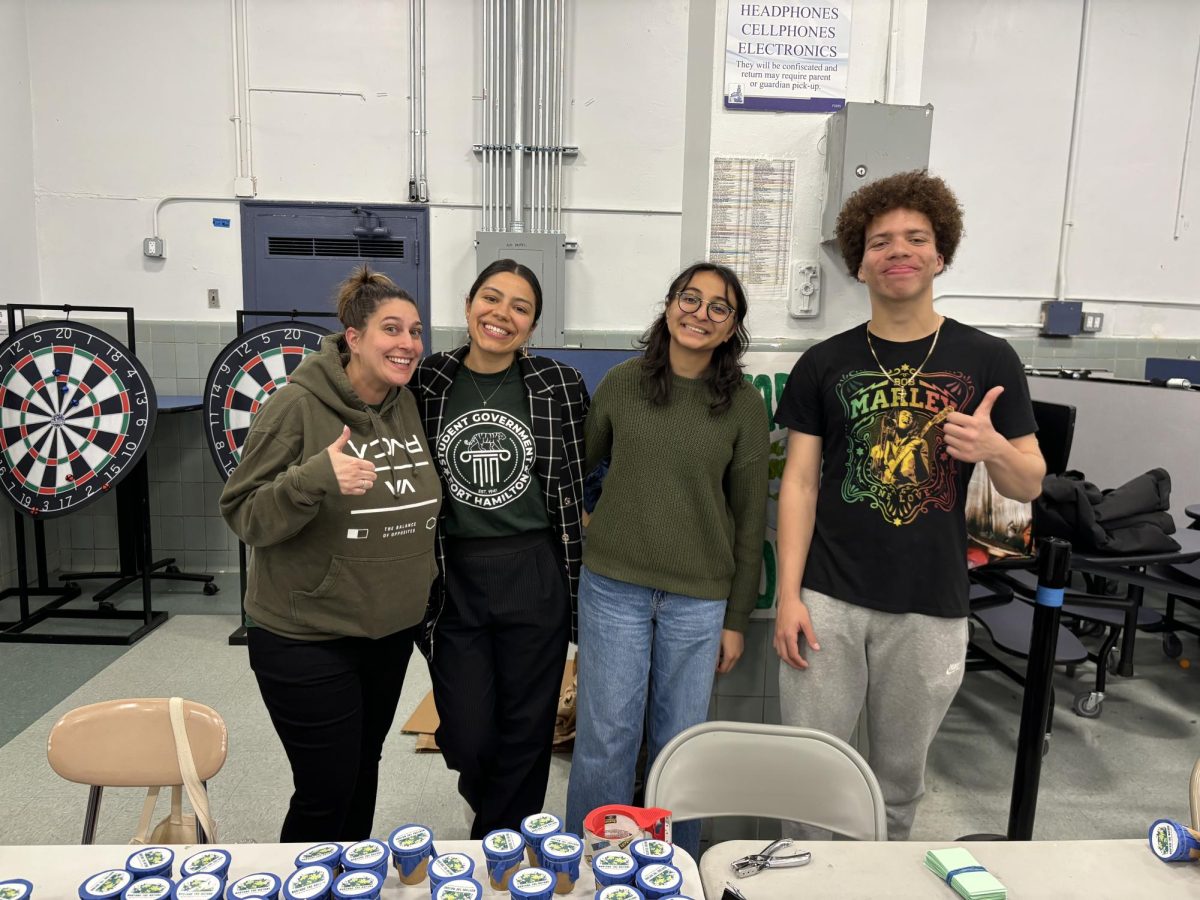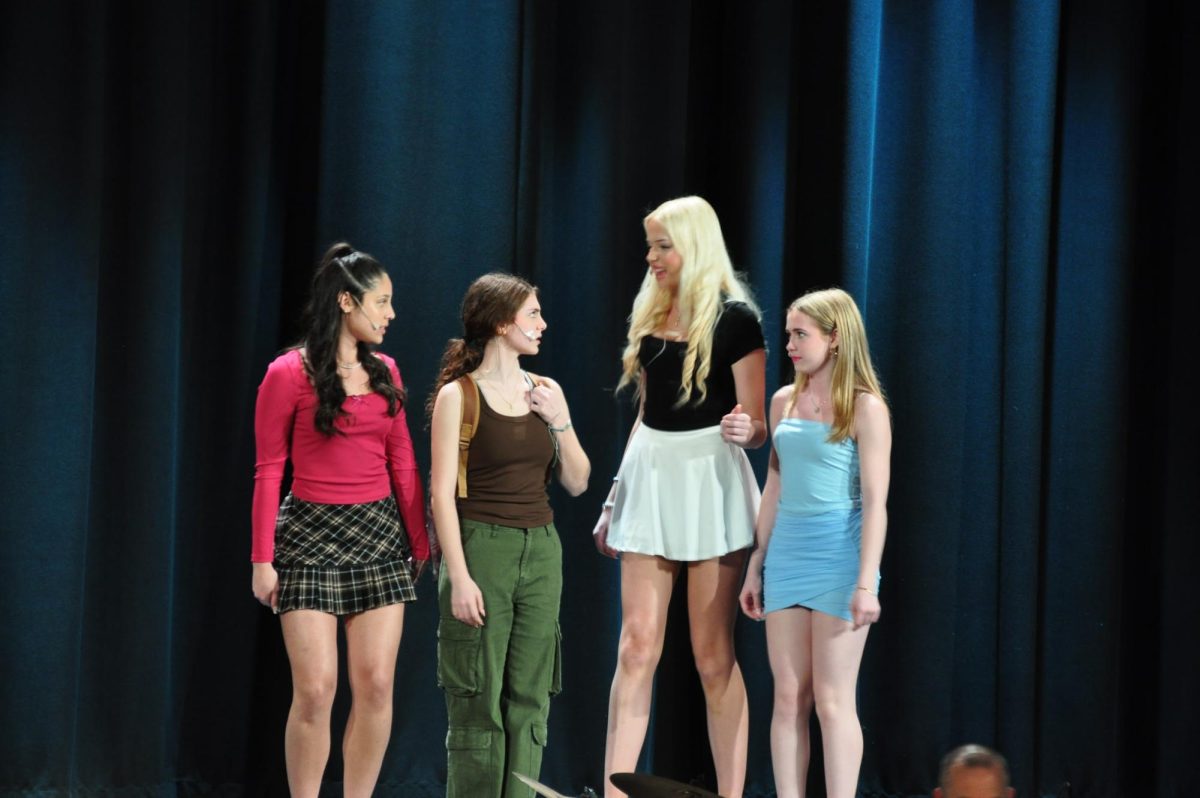Fort Hamilton High School’s production of Mean Girls opened on Wednesday, May 15. The excitement in the air was certainly palpable as attendees began taking their seats in the quickly filled rows. Pop songs like “Material Girl” and “Single Ladies” played in the auditorium as the orchestra warmed up near the anterior of the stage.
By the time everyone was seated, drama teacher and the show’s director, Mr. Coulter, made his introduction, thanking all involved in the production. After talking about the finality of his run as the musical director here at Fort, he told everyone to sit back and enjoy the show.
This classic tale needs no introduction: A shy, awkward new girl becomes a member of her school’s chic clique and learns how to navigate the politics of girlhood in an American high school after years of homeschooling. Since 2004, iconic lines and moments from the film have become embedded in the grand zeitgeist of school culture, with the youth constantly quoting and referencing it to this day. As the issues explored in the film — bullying, acceptance, and coming of age, among others — continue to be experienced by teens across the country, the honest take on high school life that Mean Girls presents only grows more relevant. This relevance is arguably why the film was adapted into a musical for the Broadway stage in 2017, and the Broadway musical was adapted for the screen in January of this year.
The Drama Academy at Fort Hamilton High School put together a professional and extremely effective production of the musical, with large orchestration, Brobdingnagian-level sets, and actors who made their mark on the classic roles. The actors performed powerhouse numbers such as “Where Do You Belong?” and “It Roars” with ease, complex choreography, and strong choruses in tow. Songs like “Whose House is This?” and “World Burn” were especially memorable showstoppers. Massive set changes were seamless, and each scene flowed smoothly into the next.
The show required an immense amount of staging to make room for the impressive choreography. A lot of what makes these dances work can be owed to the ensemble, who consistently gave it their all for every number. With quick costume changes and double-booked roles, the cast pulls off a miracle in making transitions between scenes seamless. Of course, it is also essential to take into account the work that the crew puts into the show. Maintaining clear lighting, stable audio, and making sure a thousand things go right every night are what allow the cast to perform with such prowess.
The show was double-cast, which means that different actors played the lead roles each night. On Thursday, May 16 – the night I attended – sophomores Natalie Fishman and Anthony Leone played Janis and Damien, respectively, and offered a supremely entertaining act right from the punch. Fishman makes great use of sardonic humor in her role and her chemistry with the rest of the cast brought out the best in her co-stars. Leone, meanwhile, gave a show-stealing performance with his wry one-liners and skillful choreography.
Newcomer Nia Gegeshidze played Cady, and her dazzling vocals elevated the show to new heights especially in numbers like “More is Better.” Veteran theater star and senior Maximus Amadeo proved himself as charming as he is talented. As Cady begins to form connections and enemies at North Shore High, we’re quickly swept into the world of the Plastics, the clique in which Cady finds herself entangled. The sure-shot hilarity of the eccentric Karen, as played by Mackenzie Nastro, and the uptight Gretchen, played by Katerina Cevallos, make each scene more enjoyable to watch. While Nastro leads exciting numbers like “Sexy” with massive displays of charisma, Cevallos gives a formidable performance with a vulnerability and emotional honesty well beyond her years.
Patrycja Poliwka gives a ferocious interpretation of the epochal Regina George. Cruel and manipulative, she brings the character to life with her stern delivery and histrionic outbursts. And although Regina George is the show’s (and film’s) backbone, ultimately, it is the cast’s infectious spirit that makes Mean Girls a memorable experience for theatergoers.
At its core, the musical, like the film, is unafraid to call out the toxic ways teenagers treat each other both online and in person. The Mean Girls musical, in particular, manages to get this point across in a way that feels natural, where the audience can take it to heart—referencing Twitter, body standards, underage drinking, and other contemporary dilemmas. The reason Mean Girls has lasted so long past 2004 is its commitment to representing what high school feels like, and Fort’s Drama Academy captured what made the original film so successful while making us, the audience, feel like we were experiencing the story for the first time.





























